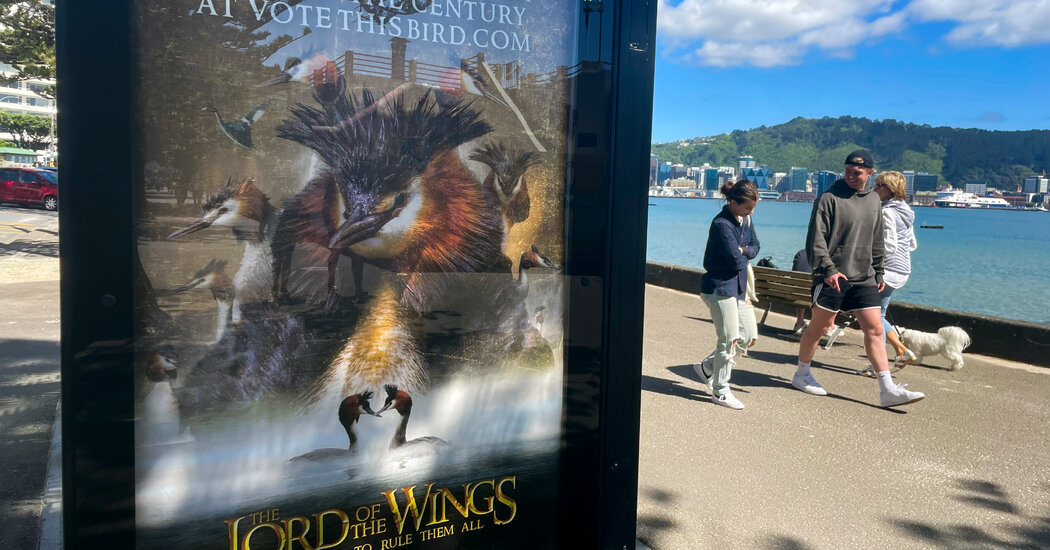The Australia Letter is a weekly newsletter from our Australia bureau. Sign up to receive it by email.
Like many modern elections, voting for New Zealand’s favorite bird has been plagued by accusations of vote manipulation, foreign influence, and debates over candidates’ eligibility in recent years.
But this year, the Bird of the Year contest experienced its biggest controversy yet. The survey verification system was overwhelmed by an influx of votes after American comedian John Oliver conducted a campaign that he described as “alarmingly aggressive” in favor of the little-known pūteketeke, also known as Australasian crested grebe, which he described as “weird, strangled-looking birds with colorful bobbles on their heads” John Oliver paid for advertising in several countries, including New Zealand, France, Japan, and the United States, encouraging residents to vote in the survey, which is not limited to New Zealanders
‘This is what democracy is all about: the U.S. mucking around in foreign elections,’ Oliver said on his weekly program, “Last Week Tonight”. He also highlighted some of the species’ unique features, including carrying their chicks on their backs and a mating dance where “both grasp a wad of wet grass and beat themselves on the chest before being left not knowing what to do next”.
On Wednesday, Forest and Bird, the nonprofit organization that organizes the contest, announced that the pūteketeke had won with over 290,000 votes, more than 24 times more votes than second place.
The survey has been conducted since 2005 and is a testament to New Zealanders’ love for their native birds, many of which are exclusive to the nation and threatened by introduced species. Last year, the contest received nearly 52,000 votes, compared to 350,000 this year.
Foreign interference irked some locally, with one comparing it to Russian interference in U.S. elections. And as the pūteketeke is little known even in New Zealand – ‘it’s quite likely, especially if you live in the North Island, you have never heard of it,” an article in local media RNZ referred to the country’s North Island – its victory has even puzzled some of its biggest internal supporters.
‘It is rather nice in a way, but I feel a bit guilty,’ he said. ‘There are plenty of other birds, arguably some more deserving.’ He cited the kiwi, New Zealand’s national bird and second in the survey, and endangered species whose conservation efforts would be bolstered with more profile.
Although the pūteketeke is also a threatened species, their numbers have steadily increased thanks to concentrated conservation efforts. New Zealand is home to around 1,000 of them, up from 200 in the 1980s. “We now have a reasonable understanding of the species’ conservation needs and a program,” Darby said.
He explained that the bird vomits because “it’s a fish-eating bird, but its ability to eat fish with spines without injuring itself is limited.” To avoid injury, they swallow their own feathers to line their digestive system and eventually form balls that they regurgitate.
Due to the way their legs are situated, the pūteketeke effectively cannot walk on land and builds floating nests on lakes. Unlike other birds that brood by squatting over them, the pūteketeke carries its chicks on its back so that, Darby believes, if there is a threat to the parents, ‘they can just fall out of the nest with their chicks for safety of the lake’.
In addition to threats from predators and habitat clearing, the birds’ floating nests have been vulnerable to fluctuations in lake levels, Darby said. In 2013, construction began on a floating nesting platform on a local lake, hoping it would provide a safer breeding spot, a move that is now seen as a key initiative that helped recover the bird population.
Now, for the stories of the week:
